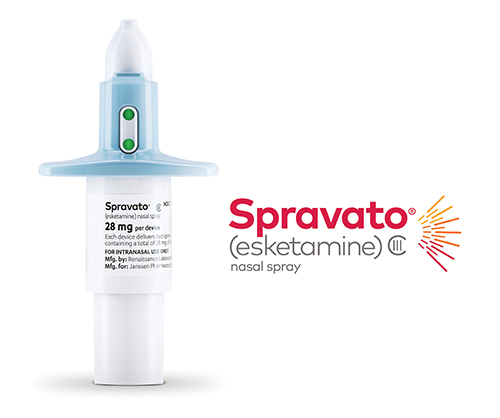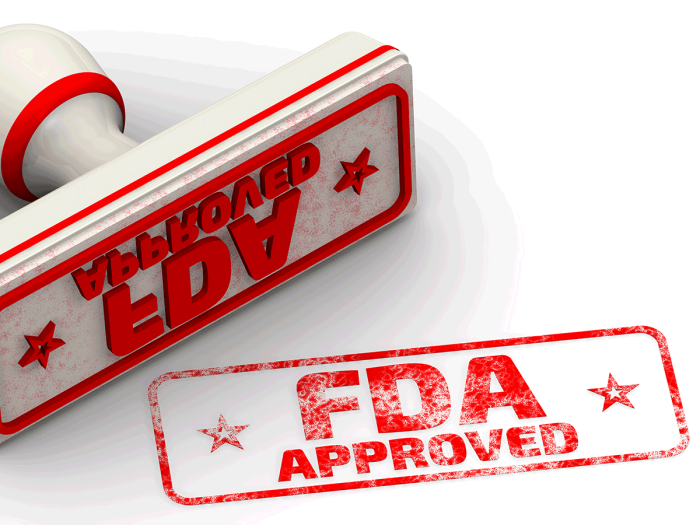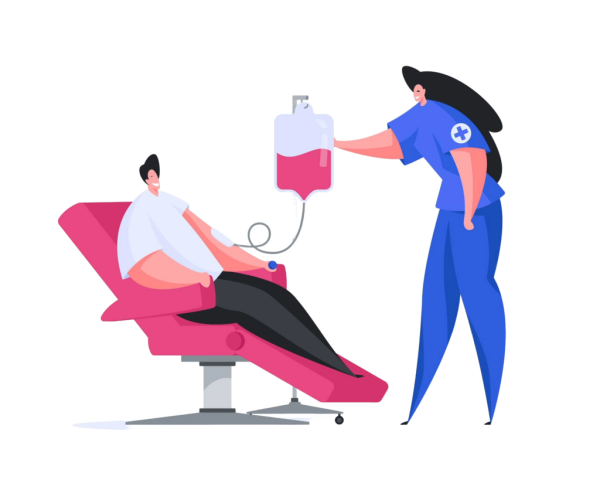Why the FDA Should Approve IV Ketamine Infusion Therapy
By Michael Alvear, Health Author & Independent Researcher
My research is published on these scholarly platforms:
For over two decades, researchers and doctors have known about the transformative potential of ketamine therapy to treat severe depression. Starting in the late 1990s, studies on intravenous (IV) ketamine began to paint a stunning picture: a single infusion of this anesthetic could rapidly relieve symptoms of treatment-resistant depression (TRD), often within hours. For patients trapped in darkness, it offered a light where none existed before.
Yet in 2019, when the FDA approved ketamine for depression, it wasn’t IV ketamine infusion that got the nod. Instead, the agency gave its approval to the esketamine nasal spray Spravato, developed by Janssen Pharmaceuticals, a subsidiary of Johnson & Johnson. On the surface, this may seem like progress. But dig a little deeper, and you’ll see why patients were shortchanged.
Decades of Research Ignored
IV ketamine’s efficacy isn’t speculative. It’s grounded in rigorous, peer-reviewed studies. Since the late 1990s, researchers have been exploring how ketamine works to alleviate depression. They found that low doses of ketamine infusion—far lower than those used in anesthesia—could dramatically reduce symptoms of TRD, often within hours. This speed is unmatched by traditional antidepressants, which can take weeks or months to take effect, if they work at all.
This groundbreaking research established IV ketamine as a game-changer in mental health care. Study after study demonstrated its ability to reduce suicidal thoughts, provide relief where other treatments failed, and offer hope to people who felt beyond help.
But when it came time for the FDA to approve a ketamine-based treatment, it wasn’t IV ketamine that made the cut, even though it’s 3 to 5x more effective. Instead, the agency approved Spravato, a nasal spray containing esketamine, a single molecule derived from ketamine. While Spravato’s approval was heralded as a breakthrough, it ignored the broader and more compelling body of evidence supporting ketamine IV therapy.
Explore My Work In Leading Scholarly Libraries

I’m an independent researcher with work published in scholarly libraries and open-science archives used by clinicians and researchers to discover new research for their own projects.
I write scholarly articles and contribute original, rigorously documented datasets designed to support replication studies, pooled analyses, and evidence syntheses for various aspects of ketamine therapy.
A One-Size-Fits-All Approach
One of the biggest advantages of IV ketamine infusion therapy is its flexibility. Every patient is different, and IV ketamine allows doctors to tailor the dose to the individual’s needs. Dosage can be adjusted based on body weight, response to treatment, and tolerance, offering a truly personalized approach.

Spravato, on the other hand, comes in standardized doses delivered through a nasal spray. While this might sound convenient, it’s far from optimal for many patients. The one-size-fits-all dosing of Spravato doesn’t account for the nuances of individual biology or the complexity of depression itself.
Patients who might benefit from a more carefully calibrated approach are left with fewer options. For some, the rigid dosing of Spravato simply isn’t enough. For others, the delivery method itself—requiring multiple sprays in a controlled setting—can feel cumbersome and less effective compared to the precision of an IV infusion.
By approving only Spravato, the FDA ignored a critical truth: depression is not a uniform illness, and its treatment shouldn’t be either.
The Price Tag Patients Can’t Afford
The cost of Spravato is another sore spot for patients. Administering the nasal spray can cost about $24,000 for the 14-treatment protocol (without insurance). It comes down to over $8,000 with insurance. (the manufacturer does offer substantial subsidies if you qualify)
In contrast, IV ketamine is often more affordable and offers the potential for quicker results. While the initial out-of-pocket cost may still be steep (about $6,00 for a course of treatment), many patients achieve significant improvement after just six sessions. Click here for a comparison of costs between Spravato and IV and injections.
Moreover, the FDA’s approval of Spravato has created a lopsided insurance landscape. Many insurers cover Spravato because it has the FDA’s seal of approval, but IV ketamine—despite its proven efficacy—remains an off-label treatment, excluded from coverage. This forces patients to either pay out of pocket for IV ketamine or settle for a less accessible and often less effective treatment.
Who Benefits from This Decision?
Critics argue that the FDA’s decision wasn’t about science or patient outcomes but about money. IV ketamine, as a generic drug, isn’t owned by any single company. It’s widely available and inexpensive to produce, leaving no opportunity for pharmaceutical giants to turn a profit.
Spravato, on the other hand, is patented and sold exclusively by Janssen Pharmaceuticals. By approving Spravato, the FDA opened the door to a lucrative new market for Johnson & Johnson, all while sidelining the more established and cost-effective treatment that already existed.
For patients, this feels like a betrayal. They trusted the FDA to prioritize their well-being, not corporate profits. But by approving Spravato and leaving IV ketamine out in the cold, the agency effectively limited access to a treatment that could save lives—just because it didn’t come with a billion-dollar price tag.
What’s at Stake
The FDA’s decision to approve Spravato while ignoring IV ketamine wasn’t just a missed opportunity—it was a disservice to patients. It left the most vulnerable people with fewer choices, higher costs, and a treatment that might not work as well for them.
For someone battling severe depression, time is of the essence. Every day spent waiting for relief is a day spent in pain, hopelessness, and isolation. IV ketamine could have been the bridge to remission for thousands, if not millions, of people.
Approving both IV ketamine and Spravato wouldn’t have been difficult. It wouldn’t have cost the FDA more time or effort. But it would have shown patients that their lives and well-being mattered more than corporate profits.
In a world where depression claims lives every day, patients deserve more than shortcuts and compromises. They deserve the best treatment available—and they deserved the FDA to do better.
Broader Applications Ignored
One of the biggest frustrations with the FDA’s decision is that IV ketamine isn’t just for depression. Over the years, it has proven effective for a wide range of conditions, including PTSD, anxiety disorders, and chronic pain. Its versatility is unmatched by most treatments, making it a lifeline for patients with complex mental health and physical health needs.
Spravato, on the other hand, is approved specifically for treatment-resistant depression and only in combination with traditional antidepressants. This narrow approval excludes many people who might benefit from ketamine’s broader potential.
For patients struggling with co-occurring conditions, IV ketamine has offered an opportunity for comprehensive relief. By failing to approve it, the FDA missed a chance to provide a versatile treatment that could address the overlapping burdens of depression, anxiety, and chronic pain.
The result? Patients are forced to navigate a fragmented system, often seeking out separate treatments for each condition—treatments that may not work as effectively or as quickly as IV ketamine.
A Decision Driven by Big Pharma?
Another major criticism of the FDA’s decision is the perception that it was driven by corporate interests rather than patient needs. Unlike IV ketamine, which is a generic drug available to any licensed provider, Spravato is patented and marketed by Janssen Pharmaceuticals, a subsidiary of Johnson & Johnson.
By approving Spravato, the FDA created a monopoly for Johnson & Johnson in the ketamine market. This allows the pharmaceutical giant to charge thousands of dollars per treatment while reaping the profits of an FDA seal of approval. Meanwhile, IV ketamine—a far less expensive and equally, if not more, effective treatment—is left out in the cold.
Critics argue that this decision wasn’t about science or public health but about protecting corporate profits. Patients who depend on IV ketamine feel abandoned, wondering why their treatment of choice wasn’t deemed worthy of the same approval.
The optics are hard to ignore. It looks like a classic case of big pharma influencing regulatory decisions, leaving patients to bear the cost—financially and emotionally.
The Patients Already Using IV Ketamine Were Left Behind
For years, IV ketamine has been a beacon of hope for people with treatment-resistant depression. Thousands of patients have reported life-changing results, with many achieving remission after just a few infusions.
But the lack of FDA approval for IV ketamine means these patients are left in limbo. Insurance companies often refuse to cover treatments that aren’t FDA-approved, forcing patients to pay out of pocket. The cost—ranging from $400 to $1,000 per infusion—can add up quickly, making it inaccessible for many who need it most.
Worse still, the FDA’s decision sends an implicit message to these patients: their experiences don’t matter. The treatment that gave them their lives back isn’t recognized or validated by the medical establishment.
For people who have battled depression for years, finding a treatment that works is nothing short of a miracle. To have that treatment sidelined feels like a slap in the face.
The Missed Opportunity to Normalize Innovative Mental Health Care
Ketamine is not your typical antidepressant. It doesn’t work like SSRIs or SNRIs, which target serotonin and norepinephrine. Instead, ketamine works on the brain’s glutamate system, a completely different pathway. This novel mechanism of action is part of what makes ketamine so effective for people who haven’t responded to traditional treatments.
Approving IV ketamine could have been a turning point for mental health care. It could have signaled a willingness to embrace innovation and expand the toolkit available to doctors and patients.
Instead, the FDA chose to limit its approval to a single, pharmaceutical-backed product. This decision perpetuates the stigma that surrounds alternative treatments, making it harder for people to see ketamine as a legitimate option.
Patients deserve better. They deserve a system that prioritizes innovation and accessibility over corporate profits. They deserve a system that validates their experiences and provides them with the best possible care.
What Patients Deserve
The FDA’s approval of Spravato could have been a milestone for mental health treatment. Instead, it feels like a half-step forward and a step back. By ignoring the broader applications of IV ketamine, favoring a corporate-driven product, and dismissing the needs of existing IV ketamine patients, the FDA failed to live up to its mission of protecting public health.
Patients deserve a treatment landscape that offers choice and flexibility. They deserve a system that prioritizes their needs over corporate profits. And they deserve a regulatory process that acknowledges the life-saving potential of treatments like IV ketamine.
The approval of Spravato wasn’t just a missed opportunity—it was a missed obligation. Depression doesn’t wait, and patients can’t afford to either. The FDA needs to do better. For the patients who depend on ketamine therapy, and for the millions more who could benefit from it, this fight isn’t over.
Why the FDA’s Approval of Spravato Isn’t Enough
When the FDA approved Spravato, a ketamine-based nasal spray, in 2019, it was praised as a groundbreaking step in the fight against depression. But for many patients and advocates, it wasn’t the win it should have been. The decision left a glaring omission: the FDA approved Spravato while ignoring IV ketamine, a treatment with decades of research, a proven track record, and life-changing results.
This isn’t just about missed opportunities—it’s about trust, access, and the lives of people battling treatment-resistant depression (TRD).
A Lopsided Insurance Landscape
The FDA’s approval of Spravato created a confusing and unfair situation for patients. Because Spravato has the FDA’s stamp of approval, many insurance companies cover it, despite its high cost. In contrast, IV ketamine—a treatment with far more research behind it—is considered an off-label use of a generic drug, meaning insurance companies rarely cover it.
For patients, this creates a painful dilemma. IV ketamine can cost $400–$80000 per infusion, with most patients needing 6-14 infusions for a full course of treatment. Without insurance, this is a major financial burden. Meanwhile, Spravato—despite being far more expensive in the long run—is often covered.
This lopsided coverage forces patients to choose between paying out of pocket for IV ketamine or settling for a less proven, less flexible treatment simply because insurance companies are more likely to pay for it. It’s a frustrating scenario for people who are already struggling, both emotionally and financially.
The irony is glaring: a treatment that has been saving lives for over 20 years is inaccessible to many, while a newer, less-researched alternative gets financial backing.
Missing the Chance to Normalize Ketamine Therapy
One of the biggest frustrations with the FDA’s decision is the missed opportunity to legitimize ketamine as a revolutionary treatment for depression. For decades, IV ketamine has been quietly transforming lives, offering relief to people who had exhausted every other option. But because it wasn’t approved for depression, it remains stuck in a legal and cultural gray area.
Approving IV ketamine would have sent a powerful message: that this isn’t just some off-label experiment—it’s a legitimate, effective treatment for a devastating illness. It would have validated the experiences of thousands of patients who have found life-changing relief through IV ketamine and opened the door for broader insurance coverage and access.
Instead, the FDA’s approval of Spravato reinforced the stigma surrounding nontraditional treatments. It limited the public’s understanding of ketamine therapy to a single product—a product many patients find less effective and harder to access than IV infusions.
For a treatment that has been a lifeline for so many, this lack of recognition feels like an insult.
Patients Deserve Better
The FDA’s decision to approve Spravato while sidelining IV ketamine wasn’t just a missed opportunity—it was a betrayal of patients who rely on this therapy. It created an uneven playing field, where the most researched, cost-effective option is often the hardest to access.
For people living with treatment-resistant depression, time is critical. Every day spent waiting for relief is a day spent in pain, hopelessness, and despair. IV ketamine could have been the answer for countless people—but without FDA approval, it remains out of reach for many.
Patients deserve a system that prioritizes their needs over profits, that values innovation over corporate interests, and that recognizes the power of treatments that are already changing lives.
This isn’t just about ketamine—it’s about what we expect from our healthcare system. It’s about trust, fairness, and the basic right to effective treatment.
The fight for IV ketamine’s recognition isn’t over. For patients, advocates, and everyone who believes in better mental health care, the message is clear: we deserve better. The FDA needs to listen—not to corporations, but to the people whose lives are at stake.
Why the FDA’s Approval of Spravato Missed the Mark
In 2019, the FDA approved Spravato, a nasal spray derived from ketamine, as a treatment for depression. It was a step forward in mental health care, but not the breakthrough it could have been. For many patients and advocates, the decision feels like a half-measure—one that left a proven, life-changing treatment, IV ketamine, out in the cold.
IV ketamine has decades of research showing its remarkable ability to alleviate treatment-resistant depression (TRD) and suicidal thoughts. Yet the FDA overlooked it, opting instead to approve a product backed by a major pharmaceutical company. This decision has left patients questioning whether their well-being was truly prioritized.
IV Ketamine: A Better Safety Record Than Many Realize
One of the reasons IV ketamine wasn’t approved may be lingering concerns about safety. Ketamine has a history as a party drug, and its potential for abuse has made some hesitant to endorse it as a mainstream mental health treatment.
But these fears don’t hold up under scrutiny. IV ketamine therapy is administered in controlled medical settings by trained professionals. The doses used are far lower than those associated with recreational use, and patients are closely monitored during and after treatment.
Studies have consistently shown that IV ketamine is not only effective but also safe when used appropriately. Temporary side effects like dizziness and dissociation are manageable and typically subside shortly after the infusion. In fact, IV ketamine has a better safety record than many traditional antidepressants, which can come with a laundry list of severe and sometimes permanent side effects.
By failing to approve IV ketamine, the FDA perpetuated outdated stigmas instead of acknowledging the real-world safety and success of this treatment.
IV Ketamine Could Have Saved More Lives
One of the most compelling arguments for IV ketamine is its ability to rapidly reduce suicidal thoughts. For people in crisis, traditional antidepressants can take weeks or even months to work—if they work at all. IV ketamine, on the other hand, can provide relief within hours.
This rapid response isn’t just a medical breakthrough; it’s a life-saving intervention. Studies have shown that a single infusion of IV ketamine can significantly reduce suicidal ideation, giving patients and their families a much-needed lifeline.
Spravato also claims to address suicidal thoughts, but the evidence isn’t as strong. Many patients report that it doesn’t work as quickly or as consistently as IV ketamine. The FDA’s decision to approve only Spravato means that countless people in desperate need of immediate relief are left with fewer options—or none at all.
The stakes couldn’t be higher. Suicide is one of the leading causes of death worldwide, and treatment-resistant depression is a major contributing factor. Approving IV ketamine could have provided a critical tool to combat this crisis. Instead, the FDA’s decision delayed access to a treatment that could have saved lives.
A Missed Opportunity to Revolutionize Mental Health Care
Depression isn’t like other illnesses. It’s complex, multifaceted, and deeply personal. Traditional treatments, like SSRIs and talk therapy, work for some but leave others feeling abandoned and hopeless. IV ketamine represents a paradigm shift—a chance to approach depression in a completely new way.
Unlike traditional antidepressants, which target serotonin or norepinephrine, ketamine works on the brain’s glutamate system. This novel mechanism of action not only provides faster relief but also helps to repair and strengthen neural connections damaged by depression.
Approving IV ketamine alongside Spravato would have been a bold statement: that the mental health field is ready to embrace innovation and give patients the options they deserve. Instead, the FDA’s decision feels like a step backward. By choosing to approve only Spravato, the agency reinforced the stigma around unconventional treatments and missed an opportunity to legitimize ketamine as a groundbreaking option for mental health care.
This isn’t just about science—it’s about how we view mental health as a society. Patients deserve treatments that work, and they deserve a system that acknowledges the urgency of their needs.
The Missed Opportunity to Bridge the Mental Health Gap
The FDA’s failure to approve IV ketamine also highlights a deeper issue: the gap between innovation and accessibility in mental health care. Depression and suicide aren’t just medical crises—they’re public health emergencies. The treatments we’ve relied on for decades aren’t enough for many patients, and the need for new approaches has never been more urgent.
IV ketamine represents a bold, innovative solution. Unlike traditional antidepressants, it targets the brain’s glutamate system, providing relief in a way no other treatment can. It’s also highly effective for people who haven’t responded to other therapies, giving hope to those who’ve exhausted their options.
Approving IV ketamine wouldn’t just have legitimized this treatment—it would have sent a powerful message that the mental health community is ready to embrace innovation. It would have shown patients that their needs are being taken seriously and that the medical system is committed to finding solutions that work.
Instead, the FDA chose a safer, more conventional path. By approving Spravato—a patented product backed by a major pharmaceutical company—they reinforced the status quo, leaving many patients feeling overlooked and ignored.
The FDA’s Decision Delayed Progress
Approving IV ketamine wouldn’t just have helped individual patients—it could have accelerated progress in the broader field of mental health care. By legitimizing this treatment, the FDA could have encouraged more research, expanded access, and inspired greater public awareness about innovative approaches to depression.
Instead, the decision to focus solely on Spravato has stalled this momentum. It has left patients, advocates, and providers to fight an uphill battle for recognition, insurance coverage, and broader acceptance of IV ketamine.
The stakes are too high for this kind of delay. Depression and suicide don’t wait, and the people affected by these conditions can’t afford to either.


